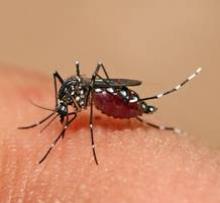A new test for the early detection of dengue fever will be available for distribution on July 2, according to a written statement from the Centers for Disease Control and Prevention.
The new molecular test identifies the dengue virus itself rather than detecting antibodies, and it uses the same equipment and supplies that most public health laboratories already use to diagnose influenza, according to the CDC.
The test, called the CDC DENV-1-4 Real Time PCR Assay, is designed for use during the first 7 days after dengue symptoms appear, which may be too early for antibody detection.
The ability to diagnose early will give clinicians and public health officials a more complete picture of dengue fever, which is now a reportable disease in the United States, said Jorge L. Muñoz-Jordán, Ph.D., chief of molecular diagnostics and research at the Dengue branch of the CDC, said in the statement.
"The availability of state-of-the-art dengue diagnostics will improve patient management and the public health response to dengue," he said.
Dengue fever is transmitted by Aedes mosquitoes and is a major cause of illness in Puerto Rico and the U.S. Virgin Islands, as well as some parts of the United States in which the mosquitoes are found. U.S. travelers returning home from Latin America, the Caribbean, and Asia are also at risk, the CDC stated.
Symptoms of dengue fever include a high fever; rash or bleeding of the nose and gums; headache, joint, muscle, or bone pain; severe pain behind the eyes; and easy bruising.
The test has been approved by the Food and Drug Administration, and it will be available to labs in the United States and internationally, according to the statement. For more details, visit the CDC website.


